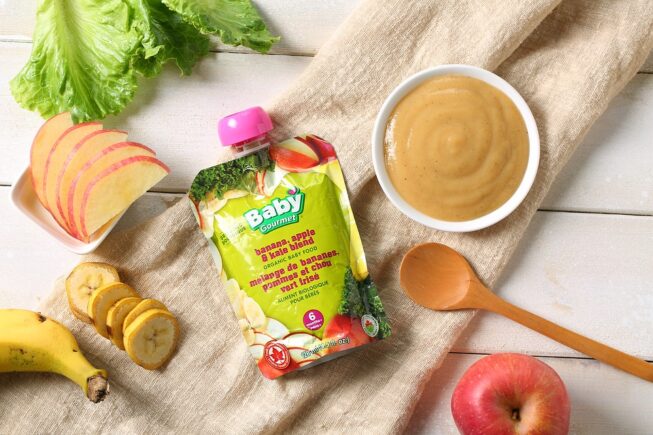Having the mindset that the reason why a child is constantly refusing to eat solid food is due to the fact that it is bland or tasteless and that the food needs a little salt or sugar to help the child be able to eat it is the wrong mindset. When it comes to feeding the child, it takes time for the child to get used to the new food to be able to eat it so having the mindset that adding sugar or salt will help the child is only doing damage to the child’s body in the nearest future. Due to the fact that the child has been on purely breast milk for almost six months introducing new food to them is very strange and it’s not because it bland.
When it comes to the quantity or sodium needed for a child per day it is less than one gram daily which is already taking through breast milk or formula. So, adding extra salt is only doing harm to the child’s kidneys affecting the proper function due to excess load, which could lead to future kidney diseases and it could also be proven to cause hypertension in adult life. It has been proven that excess intake of sodium in childhood could contribute to diseases such as osteoporosis, cardiovascular diseases and respiratory illnesses etc.

Source: pixabay.com
When it comes to feeding the child avoid giving the baby any pre-prepared food that are not made for babies or which are prepared for adult food like cereal, pasta sauces etc. When giving your child food avoid food with high sodium inside such as: biscuits, salty crackers, soups, sauces, pizza, bacon etc. instead you could provide them with low sodium foods which are also healthy and natural such as fruits, vegetables and salad, meats, fresh fish etc.
Many mothers think that giving their child sugar once in a while is a way of also showing love by giving them sweets but when a child is growing up it is very important to avoid harmful substances that could affect them in the future due to the fact that the first and second year of life is one of the most critical years in the child’s life and feeding is one of the factors. Try as a mother to only give your child what is needed for healthy development and avoid other unnecessary things like salt and sugar as often as possible. When we talk about sugar, we mostly talk about white sugar not natural sweeteners gotten from fruit.
How harmful a sugar to babies below a year:
Sugar is a refined substance with a lot of chemicals which are used to process it and they are very harmful to children.
Excess sugar may lead to the formation of caries, to decay in children and it could also lead to a depression of the immune system of the child.
There are many substitutes for sugar such as natural sweeteners like: fruits, date syrup [only after eight months of life], honey [only after a year due to the fact that it could lead to infant botulism] etc.

Source: pixabay.com
When it comes to the increase sugar intake it leads or might be associated with high body mass [BMI]later in life. When it comes to sweets it’s better to keep it at a minimum to prevent major problems and encourage healthy eating habits starting early childhood.
There is a borderline between being overly restrictive when it comes to what your child eats, and being neglecting towards nurturing healthy teenagers and adults for the future.
Excess high sugar intake could lead to different problems such as: obesity and chronic diseases like diabetes, how diseases, and cancer especially later on in the child’s life, it could also lead to additional problems such as joint pain, gout, and fatty liver diseases which are complications of people with obesity. establishing a nutritionally healthy diet or eating habits early guides your child towards a healthier lifestyle in the future.
Focus on the benefits of nutritious food rather on the consequences of sugar to help you raise your child with a positive attitude towards eating. One of the best ways to ensure their eating healthy is by avoiding keeping too many sugary snacks in the house. Through this method the child has no choice but to eat when most options are healthy and once in a while, they could receive sweets but not on a regular basis. Ensure that most of the sweets being given to the child are from natural sweeteners like fruits.

Source: pixabay.com
From researches it has shown that eating too much sugar can lead to the child being deficient of nutrients. Not only do sugary food replace essential food groups like proteins, fruit, vegetables, dairy, and whole grains They also affect the amount of vitamins present in the body during digestions especially water-soluble vitamins [B- vitamins]. It is very important to instill it in the child the difference between a healthy diet and unhealthy diet so as they grow up, they are able to find the balance between both.
Caries: The first step to protecting your child’s teeth is by avoiding added sugars, by doing this you prevent your child from undergoing painful and expensive dental treatments which could have been prevented from their childhood. Tooth decay comes more severe as time goes on by regular consumption of sugary foods and beverages which in children could lead to serious infections.
In our present day and time, we now have hidden sugars in items to improve the taste and sales. When buying items for you child endure your health practitioner or pediatrician is aware of it. So, when buying food for your baby oragnicsbestshop.com advices you go through the ingredients to ensure: No added sugar or raw sugar, no preservatives which contain toxins and is very dangerous for your child, no excessive sodium, brown rice syrup, dextrose, crystal solids, evaporated cane juice etc.

Source: pixabay.com
Listening to what the health care practitioner tells you is very important compared to what the child prefers. When it comes to the love of a mother you might be tempted to get what pleases your child than what has been advised by the pediatrician.
Remember, it’s OK for a child to indulge in treats as long as they are getting the nutrients, they require through food eaten throughout their days and learning to appreciate the benefit of a healthy diet.






